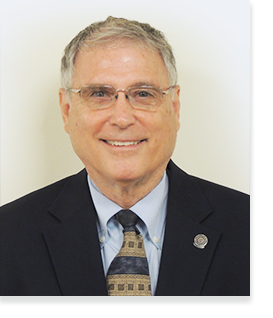|
Staying on Course: Forging Alliances to Strengthen Certification Awareness

|
As schools and colleges begin a new school year all across the nation, I can’t help but recognize how much academia has evolved in just a few years. We’ve gone from traditional curricula and diplomas
to a new wave of programs that elevate skill sets and prepare the new and returning workforce with the greatest chance of success across industries. Our Workcred team is happy to share how we
support this more transformative education, through several key partnerships and opportunities.
|
On the Road to Certification+Degree (C+D) Pathways
One area gaining momentum in recent months: C+D pathways, which involve embedding industry credentials into degree programs.
Thanks to a three-year grant from Greater Texas Foundation,
we are on a faster track to improve the effectiveness of industry certification and certificate/degree (iC+C/D) pathways.
The new grant supports a partnership between Workcred, Houston Community College (HCC), and Texas Southmost College (TSC). Over the next three years, we will initiate a series of activities
that examine and align education and workforce stakeholders’ processes and policies. The end goal is to better support low-income and first-generation learners so that they complete iC+C/D pathways,
earn postsecondary credentials of value to signal their strong learning foundation (degree) and their job-ready skills (certification), and enter the workforce.

With the help of a different grant
from ECMC Foundation, Workcred and its partners the League for Innovation in the Community College, the National Student Clearinghouse, and the Higher Learning Commission
are developing and offering community colleges an affordable, scalable approach to align degrees with industry needs through C+D pathways.
In this capacity, we’re already making progress for a greater outcome:
Workcred just announced that
this collaborative is partnering with the Community College of Aurora, Delta College, Kirkwood Community College, and Moraine Valley Community College to develop C+D pathways in two
evolving sectors: information technology (IT) and health sciences.
And earlier this month, Workcred facilitated a two-day workshop in coordination with the University of Texas (UT) System that focused on embedding data analytics
skills and credentials into liberal arts and humanities degrees. Leaders from across UT’s academic institutions participated to discuss the ins and outs of what creating such a pathway would look like.
With Credentials, It’s All in The Data

One big obstacle for credentialing bodies is a lack of understanding of credentials’ impact. To provide clarity on a few of the most common questions we get about certificates and
certification—we’ve developed a series of
Issue Briefs
that serve as guidance for policymakers as well as job-seekers and employers navigating quality workforce credentials.
Certification Myths Debunked addresses
five common myths about certifications,
while The Role of Certificates in Signifying Knowledge and Skills Attainment
illuminates different types of certificates, with emphasis on the role of assessment-based certificates and certificates of achievement.
Finally, A Primer on Associations for Credentialing Professionals gives an overview of four organizations that bring together credentialing bodies that issue certifications and certificates outside of higher education institutions.
We also explore skills-based non-degree credentials as both complements and alternatives to traditional degrees in the report,
“A World of Transformation: Moving from Degrees to Skills-Based Alternative Credentials,” a joint effort and co-authorship with the Inter-American Development Bank. The publication highlights how people looking to quickly change careers or
re-enter the labor market can benefit from certifications, particularly as certifications offer a potential alternative to degrees that sidestep some of their disadvantages.
Shifting from reading to conversation, we dig a little deeper into certifications through our newly launched Micro-chat Series—hour-long open discussions focused on topics ranging from stackable credentials to upskilling
and reskilling in a competitive marketplace.
Join us for the next session set for November 3, 2022, where we will discuss what the current data shows about certification outcomes and value, and if the data reflects the way things really are.
I also want to take a moment to recognize leadership excellence, past and present. This October, during World Standards Week, ANSI’s Leadership and Service Awards Ceremony will recognize the late Stephen Crawford, esteemed Workcred board member and a staunch advocate of workforce development and valued leader, having renamed its workforce innovation and development medal in his honor. The medal will be awarded to William Schimmel, executive director and CEO, Pharmacy Technician Certification Board, in recognition of his significant impact on workforce development in the United States.

Without the help and alliances with such leaders, our mission wouldn’t be possible. We are grateful for our community, leaders, and opportunities to support our work, now and into the future.

Roy A. Swift
|
